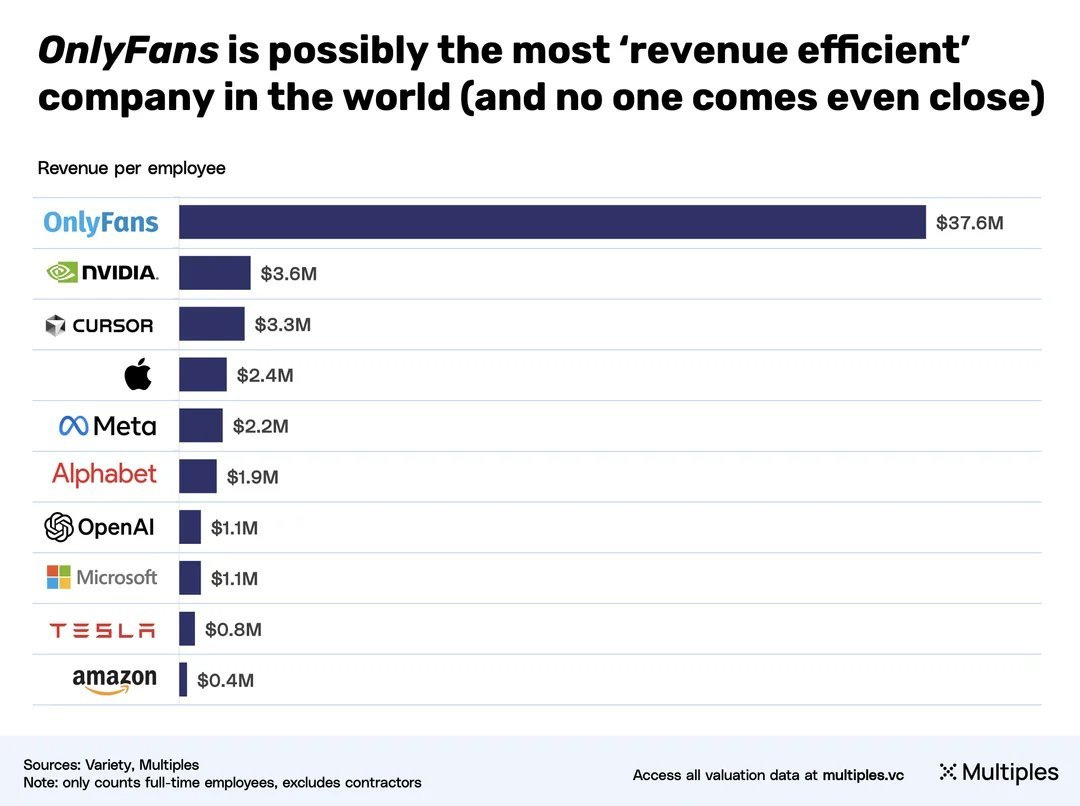The Weekly Weird #67
AI agents fool humans, Palantir up in your business, a small ugly part of the BBB, Jesus comes to Derbyshire, China v. US mushrooms, Lords say nay-I, Manchester Police lose it, business fap-titude
Welcome back to your Weekly Weird, where we tiptoe through the tulips to the decaying dungheap of dystopia!
I don’t know about you, but it feels to me like some cosmic force is pressing the accelerator on the whole “quantum weirdness” thing these days.
The world’s richest man just accused the President of the United States of sexual misconduct with underage girls.
Renowned goldbug and Judd-Hirsch-a-like-who-hates-Bitcoin Peter Schiff responded with a bizarre take, and then someone got Grok to ‘translate’ it into Jamaican patois.
Di harm was real, seen?
That could easily be the epitaph for our era.
What else happened? Oh yeah, blasphemy has been rebranded as a public order offence in the UK.
Hamit in Wonderland
“Contrariwise,' continued Tweedledee, 'if it was so, it might be; and if it were so, it would be; but as it isn't, it ain't. That's logic.”
Substack also sent me an oddly threatening survey that included a question asking how much I would pay to get back access to AI if something prevented me from using it.
You can’t make this stuff up. But can we make it go away?
Anyway, let’s get into it…
Business Fap-titude: The most “revenue-efficient” business in the world, by a factor of ten, is OnlyFans, the site of choice for the entrepreneurial extrovert.
According to Matthew Ball, OnlyFans is “probably the most successful UK company founded since DeepMind in 2010, and the most significant media platform founded since TikTok (via Musical.ly in 2014), and dedicated creator economy platform… ever.”
Here’s a video of ‘That ER Nurse’, who started an OnlyFans and bagged over $90k in the first year from a standing start.
When Warhol said that in the future everyone would be famous for fifteen minutes, he didn’t specify for what.
Jesus Comes To Derbyshire: After sweeping local elections, Reform UK secured 42 out of 64 seats on Derbyshire County Council, “up from zero to total leadership” according to the Derby Telegraph. Eager for change, the new councillors have used their mandate to preside over “the introduction of prayer at the beginning of full council meetings”, with one of them confirming it will be a “standing agenda item going forward” to the consternation of the National Secular Society. Another councillor insisted that “we are a Christian nation”, which is true in the sense that Britain has a state religion, but not a comforting thing to hear for the godless, the heathens, the apostates, the historically literate, or those with vivid imaginations who now can’t un-picture a future where Nigel Farage has a harem of ever-pregnant concubines and governs a theocracy that smells like a Wetherspoons on a Sunday morning.
A Small Ugly Part of the Big Beautiful Bill: There has been plenty of politico-yakking about the hilariously-named One Big Beautiful Bill Act, a name so Trump that it almost trumps the actual name Trump. The UK equivalent was called the Autumn Budget 2024 and Finance Bill 2024-25, to give perspective on how far in the rear-view normal boring politics is at this point in America’s journey along the alternate timeline.
The OBBBA squeaked through the US House 215-214-1, and the Senate is planning to get the vote done in time for the summer break.
If it all goes through, we know how POTUS will react - he’ll dance like a “young man”.
Joking aside, buried on page 277 of the OBBBA is Section 43201, home to a jaw-dropping provision coyly titled ARTIFICIAL INTELLIGENCE AND INFORMATION TECHNOLOGY MODERNIZATION INITIATIVE. It sounds so simple - everyone loves modernisation, and who could get huffy about “initiative”?
Well, Paragraph 3(c) imposes a ‘Moratorium’ on states’ rights to regulate AI. The wording is uneqivocal:
“…no State or political subdivision thereof may enforce, during the 10-year period beginning on the date of the enactment of this Act, any law or regulation of that State or a political subdivision thereof limiting, restricting, or otherwise regulating artificial intelligence models, artificial intelligence systems, or automated decision systems entered into interstate commerce.”
There are exceptions, of course. Exempt from the moratorium is any law that aims to “remove legal impediments” to the development of AI systems, “streamline licensing, permitting, routing, zoning, procurement, or reporting procedures in a manner that facilitates the adoption of artificial intelligence models, artificial intelligence systems, or automated decision systems…[or] does not impose any substantive design, performance, data-handling, documentation, civil liability, taxation, fee, or other requirement on artificial intelligence models, artificial intelligence systems, or automated decision systems”. So states can make any law on AI that they want, as long as it jams a hypodermic loaded with anabolic steroids into its butt. No buzzkills, party mode only.
It seems pretty clear why the tech industry got on side with Trump - that part of the OBBBA could have been written by ChatGPT after asking it to come up with the most favourable possible environment for a consequence-free full-steam-ahead push that supercharges the AI sector without the drag of things like compensation for creators or privacy protections for users.
So big. So beautiful. Dare to dream, America. Or will it be rebranded AI-merica?
This just in from the White House…
Bless him. He looks just like a real boy. Speaking of robots seeming human…
AI Agents Fool Humans: VentureBeat excitedly reported this week that the new AI agents of an AI phone support company called Phonely “hit 99% accuracy—and customers can’t tell they’re not human”. A collaboration between the companies Phonely, Maitai, and Groq sought to solve “the four-second problem”, which is “the awkward delays that immediately signal to callers they’re talking to a machine”.
“The problem occurs roughly once every ten requests, meaning standard conversations inevitably include at least one or two awkward pauses that immediately reveal the artificial nature of the interaction. For businesses considering AI phone agents, these delays have created a significant barrier to adoption.”
The “‘uncanny valley’ of voice AI” is solved, apparently. Great news! Oh, by the way:
“For call centers and customer service operations, the implications could be transformative: one of Phonely’s customers is replacing 350 human agents this month alone.”
“We’ve been seeing about 70%+ of people who call into our AI not being able to distinguish the difference between a person,” Phonely’s CEO Will Bodewes told VentureBeat. “From a call center perspective this is a game changer, because they don’t have to manage human support agent schedules, train agents, and match supply and demand.”
In other words, CGP Grey was right ten years ago about the automated future. Humans Need Not Apply.
VentureBeat ends on a cheerful note by declaring that “the era of obviously artificial phone conversations may be coming to an end faster than anyone expected.” Missing is the recognition of how much creepier it is to be entering an era of artificial phone conversations that people don’t know are artificial.
Lords Say Nay-I: The UK’s House of Lords have shot down the government’s bill on AI training for a fifth time this week and told Labour “to offer artists copyright protection against artificial intelligence companies or risk losing a key piece of legislation”, the Guardian reported.
The government’s “controversial plans to allow the AI companies to train their models using copyrighted material” as a default, with creators being required to opt-out, and with no mechanism by which to identify what material has been used for training, has been called an “existential issue” by Sir Elton John.
Readers might recall that in 2000, during a lawsuit, Elton admitted to having spent £293,000 on flowers in under two years, something that would be completely out of reach for the average best-selling musical artist in the future if AI companies are allowed to train their models on all the tunes ever recorded for free and then churn out sound-a-likes at the push of a button for a low monthly subscription fee that they don’t share with the people who provided the involuntarily free inputs for their for-profit business. What kind of world would we live in if the profligacy of rock stars was thusly curtailed? Oh the humanity.
Baroness Beeban Kidron led the charge against the IP armageddon signified by the government’s plans:
“It is not fair, not reasonable, not just, balanced or any other such word to stand in the way of the creative industries identifying those who are taking their work or their property. It is not neutral – it is aiding and abetting what we have called in the house widespread theft. We have asked privately and repeatedly on the floor of both houses what is the government going to do to stop the work of creatives from being stolen right now? The answer is nothing.”
How can the government be expected to sort out this mess? They’re too busy putting people in prison for social media posts and flying to Washington, D.C. to lie about their commitment to free speech. Cut them some slack.
Baroness Kidron has proposed an amendment to the bill, which now forces the government to either accept it, or sink the bill.
“It is in the gift of the government to accept the amendment, or put something meaningful in its place. They have failed to listen to the Lords, they have failed to listen to the creative sector, they have failed to listen to their own backbenchers.”
Nick Clegg, the former leader of the Liberal Democrats who infamously reneged on his campaign promise to not raise university tuition fees as soon as he joined David Cameron’s coalition government, dropped an apology video that got remixed into an autotune sensation, and then jumped ship to go work for Meta, is quoted by the BBC in their coverage because of how much he loves the government’s plan to let AI companies hoover up all the sweet sweet content they can eat.
Sir Nick Clegg, former president of global affairs at Meta, is among those broadly in support of the government's plans on AI and copyright. He has argued that asking permission from all copyright holders would "kill the AI industry in this country".
It’s illegal to rob banks but nobody weeps for the bank-robbing industry. What’s your point, Clegg? Wanting what other people have but not wanting to pay for it is the oldest move in the book. Does that mean we should make it the law? As Baroness Kidron put it, it would be “state sanctioned theft”.
Besides, out of all the venture capital and shareholder funds that have flowed into AI, not one penny can possibly be used to compensate the people whose work the models are built on, and whose jobs will be at least negatively impacted if not entirely replaced once the models are rolled out, for profit, by the companies who want all their inputs for free?
This is a classic case of what my dear departed grandfather used to call “crying with two loaves of bread underneath each arm”, or, perhaps more aptly, having “short arms and long pockets”.
Baroness Kidron didn’t mince words when she said that supporting the bill without an amendment that protected Britain’s creative sector would be “knowingly throwing UK designers, artists, authors, musicians, media and nascent AI companies under the bus”.
Meanwhile, in the sort of principled stand we’ve come to expect from elected officials, Technology Secretary Peter Kyle “appears to have changed his views about UK copyright law”, according to the BBC, who reported him telling them that “copyright law was once "very certain", but is now "not fit for purpose".”
Why have copyright law at all, then? AI will make all the things anyway. Everyone grab a hard hat and get down the mine.
Manchester Police lose it: In a case of swift justice, the UK’s Information Commissioner’s Office has issued a reprimand to Greater Manchester Police (GMP) because they “failed to ensure that the appropriate technical or organisational measures were in place to protect the accidental loss of the CCTV data it was processing in 2021.” The data in question was two hours of footage that GMP was “unable to recover”. Their “Custody Inspector was not provided data protection training.” They have been very naughty and they will do better next time.
As reported by Biometric Update, “UK police chiefs have asked the government for £220 million (US$296 million) annually for the next three years to fund science and technology projects, including live facial recognition, in addition to the £2 billion ($1.4 billion) it plans to spend on digital technology and data analytics over the next financial year.”
What could go wrong?
That Tracks: Ars Technica broke a story this week called Meta and Yandex are de-anonymizing Android users’ web browsing identifiers.
Tracking code that Meta and Russia-based Yandex embed into millions of websites is de-anonymizing visitors by abusing legitimate Internet protocols, causing Chrome and other browsers to surreptitiously send unique identifiers to native apps installed on a device, researchers have discovered. Google says it's investigating the abuse, which allows Meta and Yandex to convert ephemeral web identifiers into persistent mobile app user identities.
The covert tracking—implemented in the Meta Pixel and Yandex Metrica trackers—allows Meta and Yandex to bypass core security and privacy protections provided by both the Android operating system and browsers that run on it.
One of the researchers explained the seriousness of the breach to Ars Technica:
“What this attack vector allows is to break the sandbox that exists between the mobile context and the web context. The channel that exists allowed the Android system to communicate what happens in the browser with the identity running in the mobile app.”
The outcome is that Android users may now have no secure separation between their browsing history and certain apps, meaning that those apps can access behaviours previously segregated from their view by design.
The bypass—which Yandex began in 2017 and Meta started last September—allows the companies to pass cookies or other identifiers from Firefox and Chromium-based browsers to native Android apps for Facebook, Instagram, and various Yandex apps. The companies can then tie that vast browsing history to the account holder logged into the app.
While Google called it a terms of service violation, and a breach of user trust, Meta “decided to pause the feature while we work with Google to resolve the issue.”
Palantir Up In Your Business: Business Insider reports this week that the surveillance tech behemoth Palantir has partnered with the government-backed mortgage giant Fannie Mae to “root out fraud in the mortgage market” using “artificial intelligence tools developed by Palantir” to “power Fannie Mae's Crime Detection Unit, a new platform that the company believes will help detect and prevent mortgage fraud with speed and precision never before seen in the U.S. housing market.”
Fannie Mae’s statement describes Palantir as supplying tools for “expansive monitoring for anomalous transactions, activities, and behaviors to help companies detect suspicious activity and trigger investigative action”, tech that will allow the “largest holder of residential mortgage debt outstanding in the country” to “look across millions of datasets to detect patterns that were previously undetectable”.
That’s not all.
Palantir also just secured a massive contract with the US government to build “the most expansive civilian surveillance infrastructure in U.S. history.”
Under the new agreement backed by the Trump administration, Palantir will build a vast centralized data platform that connects sensitive records from across key agencies—including the IRS, Social Security, immigration databases, and more. This platform, powered by Palantir’s Gotham software, is designed to analyze behavioral patterns in real-time, flag potential threats, and support decisions around public safety and fraud detection.
The goal is “real-time data integration and artificial intelligence to profile behavior, detect fraud, and identify individuals or patterns deemed risky by the system.”
At the core of the project is Palantir’s Gotham software. Already used by defense and intelligence agencies, Gotham will now be used on the domestic front. It doesn’t just track information—it makes judgments. It could influence everything from how benefits are distributed to who gets flagged for closer scrutiny by law enforcement or immigration officers.
The ET describes the plan as “a major shift in how the federal government handles data and how much it relies on private tech firms”, raising serious questions and concerns about “who controls [the data], how it’s used, and what happens when it’s wrong.”
China vs. US Mushrooms: Two Chinese citizens were arrested in Michigan and “charged with conspiracy, smuggling goods, false statements, and visa fraud” for smuggling the fungus “Fusarium graminearum [which] can cause a disease in wheat, barley, maize and rice that can wipe out crops and lead to vomiting and liver damage if it gets into food”, according to the BBC.
The Guardian reported:
The fungus is classified in scientific literature as a “potential agroterrorism weapon,” the FBI said, and causes billions of dollars in losses each year.
Lest we get too convinced that this was nearly the start of a cataclysm right out of The Death of Grass, Reuters reported that “Clair Keene, an agronomist at North Dakota State University, said she was puzzled by U.S. authorities’ description of the fungus.”
"It's a common pathogen. We have it here. The claim that Fusarium graminearum can be used as a biological weapon doesn't strike me as accurate," she said.
Or, as the New York Post put it:
The headline writers over there must be really fun guys.1
That’s it for this week’s Weird, everyone. Thanks as always for reading.
Outro music is The Flying Lizards absolutely smashing the art of ironically robotic miming on Top of the Pops in 1979 with Money, dedicated to all the creative people sweating out there while the Casual Friday crowd eat their lunch using AI.
Yes, that’s a pun on funghis. I am also a fun guy.











